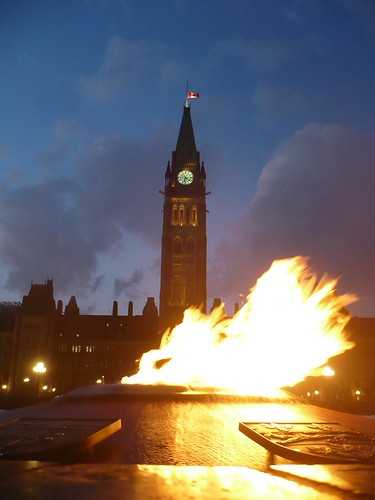Looking back on the 2011 election, one thing becomes crystal clear:
The left did try so very hard.
Left-wing groups leapt over one another online for the privilege of being the group that not only prevented Prime Minister Stephen Harper from winning an election, but turfing him out of the Prime Minister's office entirely.
They fear mongered at a torrid pace, burned up the Twitter feeds of the nation, and (in the case of websites such as ShitHarperDid), blatantly lied wherever they felt they needed to.
And they came up short. Which is fitting when one considers the biggest lie ever uttered in the 2011 federal election: the so-called "contempt of Parliament" lie.
Moving to defeat the government on charges of Parliamentary contempt was, no doubt, the most desperate gambit the left had ever imagined. It was intended to panic Canadians about the direction of the government.
It clearly didn't work. More Canadians voted than in 2008, and more voted Conservative. More voted Conservative than for any other party, and as a consequence Harper is returning to Ottawa at the head of a majority government.
Many of those who campaigned so hard on the back of "contempt" charges are surely scratching their heads today, wondering why Canadians didn't take that nearly so seriously as they thought they would.
The reason to that is very simple:
There was nothing to these charges of contempt.
Queen's University professor emeritus Ned Franks is considered the top advocate of Parliamentary privilege in the entire Commonwealth. If Parliamentary privilege had truly been breached, or if Parliament had truly been impeded in its funtions, one could fully expect that Franks would be apoplectic about it.
Apoplectic he was not.
"If the finding of contempt is purely the result of a political game, it's not super serious. If the finding of contempt is something really went wrong, then it is serious," Franks remarked in March. "I have wrestled with this, and I'm not convinced that there actually is a contempt of Parliament and I don't think it's the important issue."
In fact, Franks pointed to a bigger problem with Parliamentary procedure in regards to contempt: that it isn't terribly well-defined.
"To be found in contempt of Parliament, a person must be found guilty by the House of Commons of actions that have obstructed or impeded the House in the performance of its functions," Franks mused. "That's not the same as privilege and I think we have to appreciate that there's no limit to what might be contempt."
Nor is there any guarantee that cases of Parliamentary contempt will be equally pursued in all cases.
For example, there's the famed "crosses burning in Prince George" remark uttered by Liberal MP Hedy Fry in the House of Commons in 2001. Fry later admitted that it wasn't true, and apologized.
Fry was, at the time, the Minister of State for Multiculturalism. So her misleading of Parliament was actually an extremely serious matter. Yet she was not held in Contempt of Parliament. That the House of Commons was controlled by a Liberal majority at the time is likely of no small consequence.
Another case is that of Lloyd Axworthy, who was also a member of the Chretien government that tabled and passed the long-gun registry. Liberals told Canadians that the long-gun registry would cost $2 million to put in place. By 2006, costs had exceeded $1 billion.
Meanwhile, Axworthy had reportedly instructed his fellow Cabinet ministers that they shouldn't talk about the cost of the long-gun registry, and that they should talk about expected public safety-related benefits instead.
Axworthy was never held in contempt of Parliament, largely because he had left Parliament by the time his remarks had come to light. Parliament was (again) controlled by a Liberal majority at the time of Axworthy's tenure, so it's unlikely he would have been held in contempt even then.
It seems that the Liberals, at the very least, have four approaches to contempt of Parliament: one for when the Conservatives govern, and one for when they govern. One for a minority Parliament, another for a majority Parliament.
It shouldn't surprise anyone. When one considers the results of the 2011 federal election, it becomes clear: it really didn't. Canadians took the matter with a grain of salt, and voted accordingly.
The rest is history.



No comments:
Post a Comment
Post your comments, and join the discussion!
Be aware that spam posts and purile nonsense will not be tolerated, although purility within constructive commentary is encouraged.
All comments made by Kevron are deleted without being read. Also, if you begin your comment by saying "I know you'll just delete this", it will be deleted. Guaranteed. So don't be a dumbass.